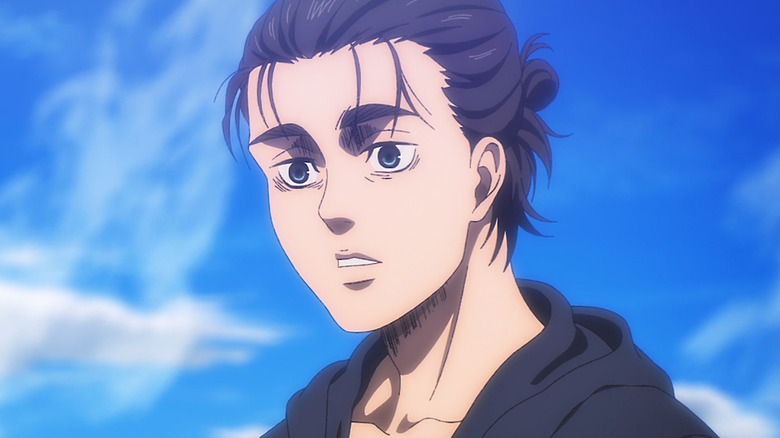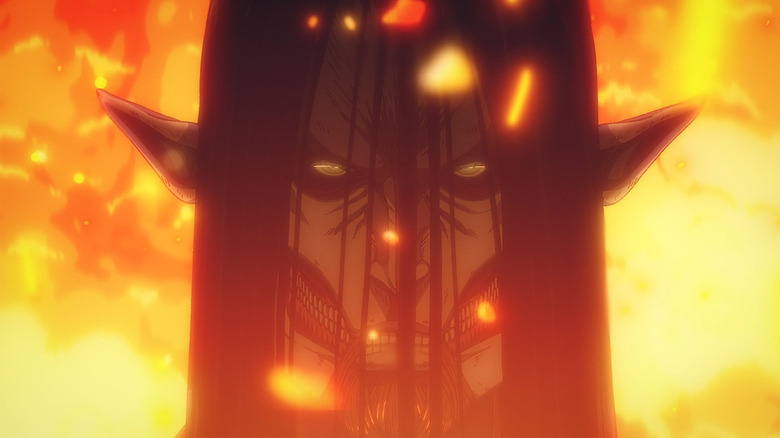Attack On Titan: The Real Reason Eren Started The Rumbling Is Pretty Stupid
The fourth and final season of "Attack on Titan" premiered in December 2020, kicking off a slow and steady march to its finale that spanned four distinct blocks across nearly three full years.
Over the course of that last season, former protagonist Eren Yeager activates previously latent godlike powers and triggers an apocalyptic event called the Rumbling. According to science, the Rumbling in "Attack on Titan" consists of 500,000 titans in total, led by Eren in a gargantuan, skeletal form. In the final episode of the final season, viewers finally learn from Eren just why his heroic past gave way to this major villainous act that — as he also reveals in the same sequence — wipes out 80% of human life by its end.
As Eren details in a conversation with his childhood friend, Armin Arlert, he decided to activate the Rumbling simply because he had the power to do so. Eren's one and only goal was to save his friends, and rather than think through what they might need to thrive, he opted to use his one major superpower with little regard for just how it might accomplish this. Of course, while this reason is hardly justifiable, its hollowness is key to the final message "Attack on Titan" attempts to impart to its viewers.
Eren represents authority figures in real-life conflicts
"Attack on Titan" is a show about war. Initially, the residents of Paradis Island are in conflict with its titan inhabitants before, at the end of "Attack on Titan" Season 3, finding out that they live off the coast of a larger nation called Marley. At that point, they learn of their identity as Eldians, who are collectively subjugated by Marley.
Eren was expecting liberation outside the island, but instead found an even greater conflict. Essentially, as soon as he realized his potential to activate the Rumbling, he decided that its resultant destruction was a worthwhile price for freedom from Marley's rule. As he explains in the final episode, this was not a careful calculation, but rather a snap decision.
It's not difficult to translate Eren's reasoning to real-life conflicts in which world leaders may have resorted to violence instead of more judicious efforts to enact lasting change. In an interview the New York Times conducted after the "Attack on Titan" finale premiered, its creator, Hajime Isayama, shared that this bleak resolution was the only way he ever saw his series concluding. "I guess there could have been an ending where it was a happy ending and the war ended and everything was fine and dandy," he said. "[But] it's just not plausible in the world we're living in right now. And so, sadly, I had to give up on that kind of happy ending."

